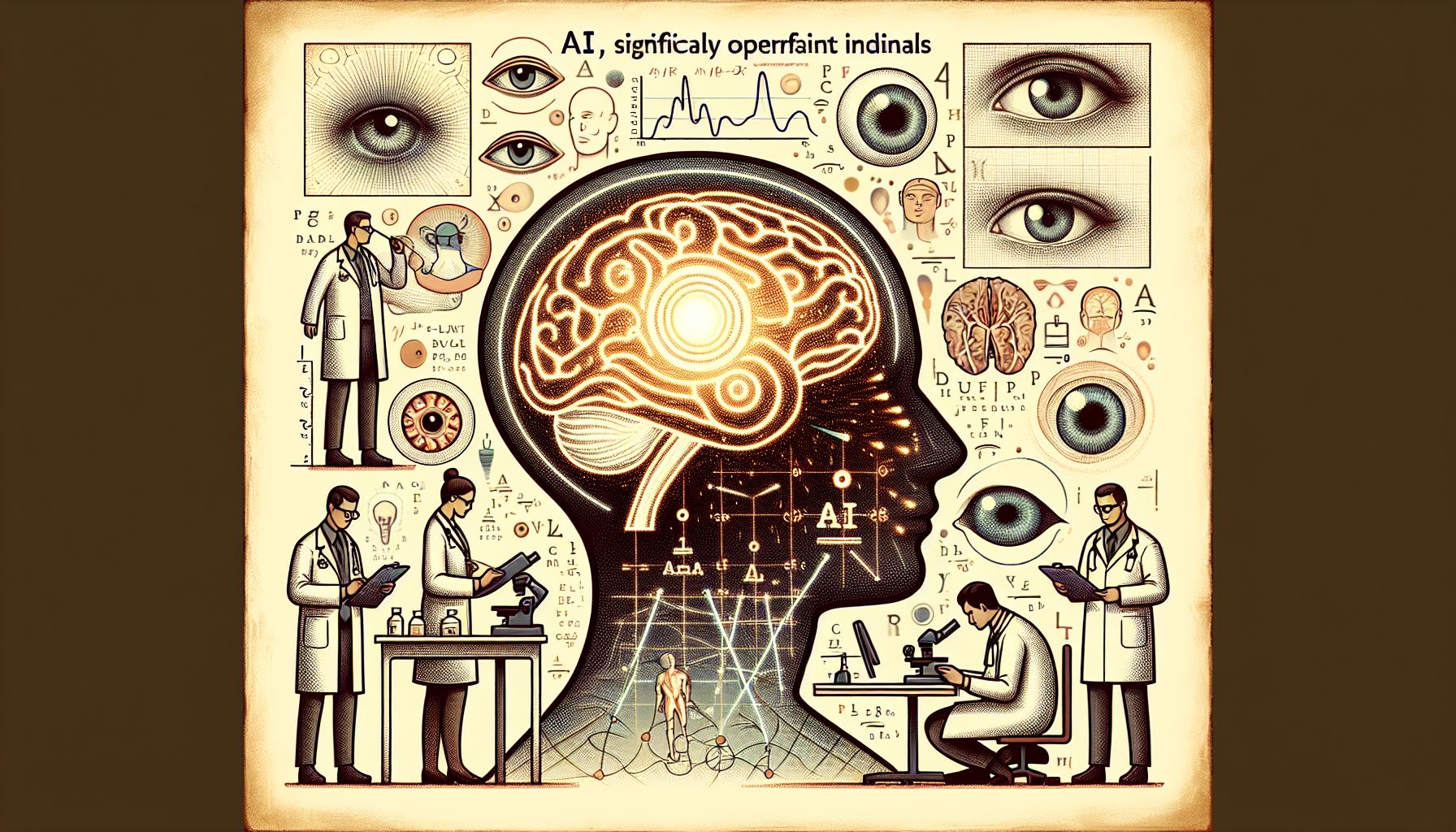AI surpasses non-specialists in eye care diagnostics

GPT-4 demonstrates superior performance to junior doctors in eye assessments, promising to streamline patient triage and care.
A New Benchmark in Eye Care Diagnostics
The University of Cambridge has pioneered a study with far-reaching implications for the future of healthcare, revealing that the AI model GPT-4 has outstripped the diagnostic capabilities of non-specialist doctors in eye assessments. This large language model, developed by OpenAI, was tested against junior doctors using 87 different patient scenarios related to eye problems. The results were clear: GPT-4 not only outperformed unspecialised junior doctors but also scored comparably with trainee and expert ophthalmologists[1][3].
How GPT-4 Enhances Medical Diagnostics
GPT-4’s proficiency in eye care diagnostics stems from its ability to process information and suggest diagnoses and treatments by following clinical algorithms. Dr. Arun Thirunavukarasu, the lead author from the University of Cambridge, emphasized the potential for GPT-4 to assist in triaging patients to determine the urgency of their conditions. Such a system could direct which cases require immediate specialist attention, which can be managed by general practitioners, and which do not necessitate treatment[1]. The implications of this are profound, offering a way to alleviate overburdened healthcare systems and potentially reduce waiting times for care in the UK[1][2].
The Role of AI in the Clinical Workflow
Despite GPT-4’s impressive capabilities, the researchers underscore that AI models are not intended to replace human healthcare professionals but rather to augment their expertise. With the incorporation of AI like GPT-4 into clinical workflows, general practitioners may find a valuable resource for providing prompt advice, especially in specialized fields like ophthalmology. The study also underscores the need for continuous research to characterize the abilities and limitations of commercially available models, as patients increasingly turn to them for medical advice[4].
Balancing Technology and Human Touch
While GPT-4 and similar models show promise in improving healthcare delivery, Dr. Thirunavukarasu stresses that the empowerment of patients in choosing AI involvement is crucial. The decision to involve computer systems in medical diagnostics will ultimately be at the discretion of each individual patient. In the meantime, AI continues to evolve, with OpenAI’s GPT-4 Turbo surpassing its predecessor as the most powerful language model available to premium users, indicating a trend towards increasingly sophisticated AI tools in medicine[2].

